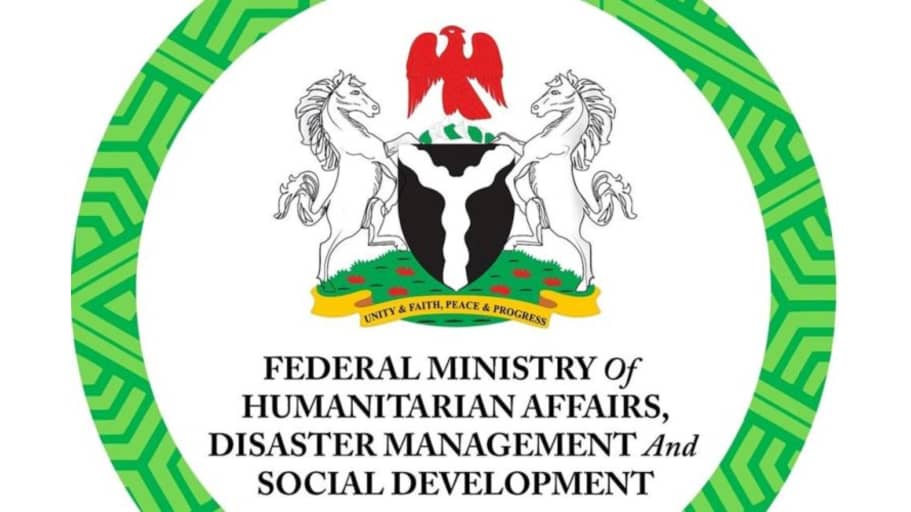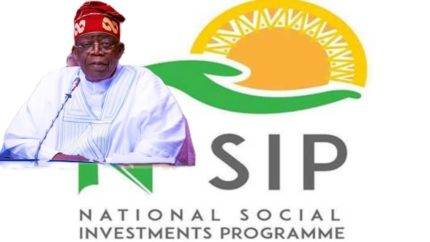President Tinubu In a bold move responding to the alarming rise in corruption allegations surrounding the National Social Investment Programme Agency (NSIPA), President Tinubu has decided to suspend all programmes administered by the agency. This decision comes in the wake of an ongoing investigation into the alleged malfeasance in the management of NSIPA and its various initiatives.
The suspension, effective for a period of six weeks in the first instance, encompasses all four major programmes under NSIPA’s purview – the N-Power Programme, Conditional Cash Transfer Programme, Government Enterprise and Empowerment Programme, and the Home Grown School Feeding Programme. This decisive action underscores the seriousness with which President Tinubu views the allegations and reflects a commitment to addressing corruption within the national social investment framework.
Concerns over Operational Lapses Prompt President Tinubu to Institute Ministerial Panel
President Tinubu has voiced significant concerns over operational lapses and improprieties related to payments to the beneficiaries of NSIPA’s programmes. To address these issues comprehensively, he has constituted a ministerial panel tasked with conducting a thorough review of the agency’s operations. The primary objective of this review is to identify operational deficiencies and recommend reforms that will bolster the integrity and effectiveness of the NSIPA.
During the period of the suspension, all NSIPA-related activities, including distributions, events, payments, collaborations, and registrations, will be frozen. This decisive measure aims to prevent any further potential misuse of resources and ensure a clean slate for the necessary reforms. President Tinubu emphasizes that this action is essential to restore public trust in social intervention programs, assuring stakeholders and the Nigerian public that his administration remains committed to a swift, unbiased process that will optimize the impact of these programs for the benefit of the nation’s most vulnerable citizens.

The National Social Investment Program in Nigeria: President Tinubu
The National Social Investment Program (NSIP) of Nigeria, inaugurated in 2015 under the leadership of President Muhammadu Buhari, stands as a crucial social welfare initiative. The program, guided by the National Social Investment Office, seeks to create a more balanced distribution of resources, particularly targeting vulnerable segments of the population such as children, youth, and women. With a commitment to fostering economic development and mitigating the adverse effects of poverty, the NSIP has implemented four comprehensive programs.
These programs are designed not only to provide immediate relief but also to address the systemic challenges that perpetuate poverty. By prioritizing social protection systems, the initiative aims to empower individuals and families, enhancing their resilience to crises, facilitating job opportunities, improving productivity, and investing in the health and education of the nation’s youth. President Buhari’s administration recognizes the pivotal role of well-designed social protection systems in breaking the cycle of poverty and fostering long-term economic growth.
Achievements and Existing Challenges
Over the years, the NSIP has made commendable strides in its mission to uplift marginalized communities. The content of the program is considered adequate in its scope, effectively addressing key issues that hinder the nation’s progress. However, challenges persist in the realm of operational procedures and implementation effectiveness. Inadequate funding poses a significant hurdle, limiting the program’s reach and impact. The need for increased financial support to expand coverage and improve the quality of services provided cannot be overstated.
Moreover, transparency and accountability remain areas of concern. The NSIP recognizes the importance of open governance and is actively working to address issues related to information management. A lack of transparency not only hinders public trust but also obstructs the efficient functioning of the program. The pressing need for improved infrastructure to facilitate seamless implementation is another challenge. The success of the NSIP hinges on overcoming these obstacles, and concerted efforts are underway to ensure that the program fulfills its potential as a catalyst for positive social change.

Future Prospects and Ongoing Reforms
Looking ahead, the NSIP is poised for further expansion and refinement. The Nigerian government, acknowledging the vital role social protection plays in national development, is committed to addressing the identified challenges. A comprehensive approach to reform is underway, focusing on securing increased funding, enhancing transparency, improving information management, and fortifying the program’s infrastructure.
As the NSIP continues to evolve, it stands as a testament to Nigeria’s dedication to creating a more equitable society. With a firm foundation and a commitment to overcoming operational challenges, the program is well-positioned to make enduring contributions to poverty alleviation and human capital development. As the nation strives for inclusive growth, the National Social Investment Program remains a cornerstone in the ongoing journey toward a more prosperous and resilient Nigeria.
Table of Contents
Discover more from OGM News NG
Subscribe to get the latest posts sent to your email.














